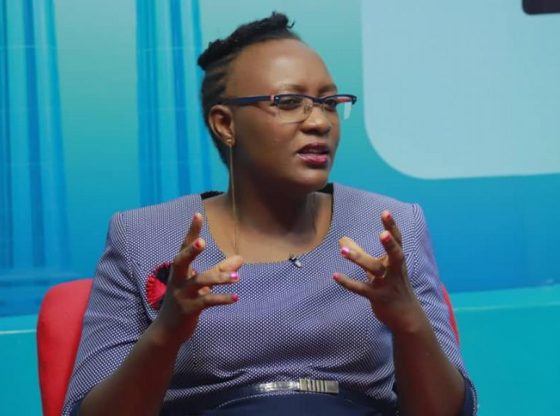The Electoral Commission released a revised Electoral roadmap for the 2020/21 General Electi00 and announced that campaigns would be conducted through media (Radio, TV, and Social Media platforms). However, according to Afrobarometer 2019 research; computer usage in Uganda stands at 4%, while 74% of Ugandans never use the Internet, and only 26% use the internet.
Furthermore, of the 26% who go to the internet only 7% use it daily, another 7% use it a few times a week, 45% use it a few times a month and 5% use the Internet less than a month. Uganda has an Internet penetration of less than 32%. In terms of Radio stations, Uganda has 260 radio stations, 42 TV stations, and 86% own mobile phones(smartphones and Kabiriti). From the foregoing statistics, only 1.225 million of the 17.5 million voters would access campaign information. Moreover, looking at world trends, in the last six years, Freedom of Expression and Belief, and especially people’s freedom to express their personal views without surveillance or retribution, suffered the most.
Campaigns and rallies are at the heart of the whole electoral process and hold the processes together. The voting process is impacted by the campaigns. It is through campaigns that the electorate participates; in essence when voters are denied a chance to participate in candidate rallies and campaigns it means that the voters’ rights as enshrined in Article 1 clause(4) and Article 59 of the Constitution are threatened and yet the voter is king in every electoral process. Failure to build consensus on the type of campaigns for the 2021 general elections, is likely to affect the process of candidates mobilizing their voters across the country and this can be construed to imply an unlevelled playing field ahead of the Elections. Consequently, this would contribute to the increasing anger and anxiety among the electorate. Although the law provides for campaigns through the media as a campaign tool; it does not substitute physical campaigns of candidates with radios, televisions, and social media. The Electoral Commission under Article 61 of the Constitution and in Section 12 of the Electoral Commission Act cap 140, is meant to preserve the Citizens’ right by ensuring that the electoral process is one that espouses the principles of Freedom, Fairness, and Credibility.
Many Ugandans will use radios to access campaign information
Just as Ugandans were trying to come to terms with this unusual campaign methodology the Parliament did the unthinkable; passed a prohibitive instrument on how political parties will engage in the 2021 elections.
The instrument erodes internal party democracy by demanding that parties should appoint flag bearers, instead of selecting flag bearers through proper democratic channels within the political parties. The choice of flag bearers is now at the discretion of the prevailing leadership of political parties, not the members of the party which emboldens dictatorship within parties as opposed to democracy. Electing of party flag bearers is likely to increase anxiety, anger, and frustration in political parties and this will definitely spill over to all voters because political parties are a public domain.
The instrument erodes the independence of political parties, which are meant to be independent public bodies with constitutions that govern their operations. The worst part of the instrument is that political parties are supposed to be answerable to the minister of Justice and Constitutional Affairs. This means that political parties are now officially the briefcase of the minister and this renders the political parties’ code of conduct null and void.
All the limitations on access to information notwithstanding political parties are required by the new instrument to conduct party meetings online and share resolutions digitally. This in essence means that the over 10 million Ugandans affiliated with political parties, but have no access to digital methods of engagement are left out of participating in the political and democratic processes of their political parties.
Political participation is a cardinal principle in democratic processes and it a basis for judging whether an electoral process was free and fair. It is the voters of political parties that vote more often than people who do not have political party inclination. The success of an election is judged by whether it was partisan or nonpartisan in as far as supporters of political parties are concerned. The new political party law has threatened an already problematic election in the wake of COVID-19.
The quick solution to this challenge is to allow the people to participate in their political party activities and other electoral processes as enshrined in article 1 clause 4 and article 59 of the Constitution. Anxiety and anger among voters only breed round for violence and mistrust in the process. In the 2016 elections Ugandans dropped over 86% of the MPS from Parliament and in 2021 Ugandans were set to drop 96% of the MPs because of the way the house has behaved in the last five years, therefore, the MPS having anticipated their downfall, they decided to secure their space in Parliament by sacrificing the voter, who is king in every electoral process. Voters only get one chance in five years to pronounce themselves on the governance of their country and this chance is coming up again in 2021. The Political party instrument needs to urgently be reviewed and Electoral Commission should allow for some offline political engagements as long they follow standard operating procedures. The 2021 Electoral processes lack consensus from the various political actors and Electoral Commission and Parliament should quickly move to generate that consensus.
Y.a
The author is the Executive Director Citizens Coalition For Electoral Democracy in Uganda CCEDU.


